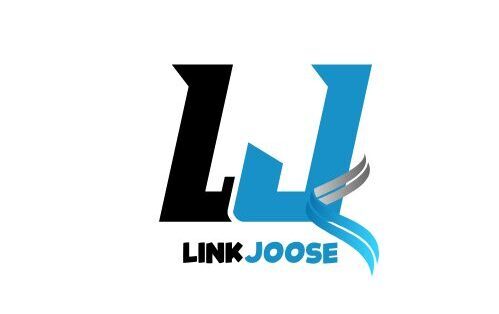INTRODUCTION:
Business Property for Rent
Today, it is one of the hardest job options for an entrepreneur, a startup, or an already running company in finding a suitable commercial property on rent. The commercial real estate market has grown tremendously over the years and has much to offer businesses that want to establish offices, shops, warehouses, or even manufacturing units.
Whether you are a first-time owner or just learning to invest, renting business property gives its own good and bad. In this guide, you will find a wealth of information about renting commercial property-from knowing the type of properties available along with their benefits, negotiation tips, and mistakes to avoid-to much more.
Business Property For Rent
Commercial rental space is any space that is rented out to serve as a location for business operations. This property may include:
– Office buildings
– Retail Stores
– Industrial Spaces
– Warehouses
– Showrooms
– Co-working Spaces
– Medical or Health Clinics
– Restaurants or Cafes
These properties are entirely constructed to fulfill the needs of company functionality, instead of residential spaces which are made to cater to the living purpose.
Types of Business Property for Rent
The commercial property rental market offers many property types, suited for different kinds of businesses. Knowing the types helps in selecting the right business property for rent according to your requirement.
1. Offices
Office buildings are best suited for corporate setups, startups, tech firms, law firms, and consulting firms. These properties come with an array of amenities, including conference rooms, waiting areas, and high-speed internet connectivity abilities.
2. Retail Spaces
Retail stores or shopping centers serve businesses in direct contact with customers, such as fashion boutiques, grocery stores, or electronics outlets.
3. Industrial Units
Industrial units mean warehouses, logistics, and manufacturing facilities. These units are basic for businesses dealing with production, heavy machinery, or storage.
4. Mixed-use Properties
Some business property for rent are mixed-use properties consisting of office space, retail, and perhaps residential units. Mixed-use buildings are more and more becoming popular among urban backgrounds.
5. Co-Working and Shared Space
These flexible shared spaces are an economical alternative for freelancers, digital nomads, and small teams. They come with essentials, such as internet access, printing, and meeting rooms, which are paid for by the patrons collectively.
Benefits Of Renting A Business Premises
Whether establishing a new company or testing the waters in a new market, renting is better than buying business premises for many reasons. Here are some good ones.
1. Lower Upfront Costs
Commercial real estate acquisition generally involves heavy up-front capital requirements. Renting, on the other hand, requires very little up-front investment and is the best option for a start-up.
2. Flexibility and Scalability
A business can change its premises without going through the entire sales exercise when it wants to expand and must acquire a larger space. If your team grows, you can move to a larger space with ease.
3. Repairs and Maintenance
In most lease agreements, major repairs and maintenance are provided for by the landlords. This can take a lot of stress off reducing unexpected costs.
4. Prime Locations
High-end commercial locations are almost always available only for lease, and thus, businesses can have access to some of the busiest areas without the headache of ownership.
5. Concentration On Core Tasks
With ownership costs diminished, businesses can spend what time they have growing their brand and serving their customers rather than focusing on property ownership.
Renting Considerations
Before making up mind to rent a commercial property, it is important to consider a few factors:
1. Location
Pick a site according to the target market, employee convenience, and transport access. For example, foot traffic might be crucial for retail businesses; for logistics firms, it is being close to the highways, ports, etc.
2. Cost
Assess the rental cost including utilities, maintenance, insurance, taxes, and everything else. Consider deposits and moving fees as well.
3. Lease Agreements
Find out how long the lease runs, what type of rent escalation will take place, whether there are options to renew, and what termination clauses there are. All these clauses can have great effects on your operations for a long time.
4. Space Requirements and Layout
Analyze whether the space suits your current and future needs, supports your workflow, and allows for expansion if necessary.
5. Zoning Laws
Ensure that the property is zoned for your type of business activity. The kind of business activities allowed vary with state and might differentially restrict the business activities to be allowed.
Choosing the Best Business Property for Rent
Finding the right business property can be arduous and requires a lot of research and inquiry. Below is a simple step to ease your search:
1. Online Platforms
The websites and applications dedicated to listing commercial properties usually help to Compare prices, locations, and amenities.
2. Hire a Commercial Real Estate Agent
An experienced broker knows the market, negotiates better, and avoids expensive mistakes.
3. Network with Business Communities
Word of mouth and local commons business networks have hidden opportunities yet to be marketed online.
4. Visit the Premises
Never rent a property without going through it. Walk the space, observe its traffic patterns, and talk to neighboring tenants if possible.
Lease Agreement Essentials
Estas restricciones regulan la relación entre el propietario y el inquilino. Hence, it is essential to know all clauses before signing any document about business property for rent.
Some important components of a lease are:
Rental amount and date of payment
Security deposit stipulations
Duration of the lease and terms of renewals
Responsibilities with reparations and utilities
Permitted uses of the workspace
Clauses on subletting or assignment
Eviction or termination provisions
Never enter into a lease without having it reviewed by an attorney.
Watch-Once Hidden Costs
While renting a commercial property, do not only check for the basic rent. Keep an eye open for other costs that may not be immediately apparent:
Common area maintenance fees
Property taxes (which may sometimes be absorbed by the tenant)
Insurance costs
Utility bills
Parking fees
Costs for fit-out or customization
Attorney fees during lease negotiations
Fully understanding the cost associated with a property will save you from lurking budget overruns.
Negotiating the Best Deal
Don’t just take the first offer. Leasing a commercial property offers an opportunity to negotiate great terms, discounts, or added perks.
Tips for Successful Negotiation:
Do some research. Check the market value within the vicinity.
Highlight your business’s strengths – Show why you would be a good tenant.
Request rent abatement, especially for properties needing improvement work.
Negotiate other lease terms, not just the price – Terms like lease length, maintenance responsibilities, and various allowances are just as important.
Get any and all agreements in writing – In the world of commercial leases, verbal agreements mean bupkis.
Often made mistakes for avoidance
Even seasoned entrepreneurs may err while leasing business property for rent. Here are some common mistakes and how to avoid them:
Not seeking professional assistance: Always consult real estate professionals and advisors.
Ignoring hidden charges: Have a careful look at the lease agreement, especially for any surprise charges.
Signing unreasonably long leases: Flexibility is a big deal for growing businesses.
Ignoring zoning laws: Never assume that your landlord has confirmed the zoning compliance.
Not providing for inspections: Even property inspection by professionals should be taken into account after the lease has been signed.
The Right Commercial Rental Property to Scale Your Business
A business property for rent can really serve as a plugging the growth engine for your company. How?
Location – More audience attraction- More visibility – More sales.
It resonates with your brand-audio and visual effects of the interior and general space may enhance the image of your company.
Hire Locally – A Good Place Makes for Ease of Attracting and Retaining Talent.
Flexible Terms-An Experiment-A short-term rental is available for testing one’s ideas with reduced risk about new offering-product or service.
Trends Within the Rental Market for Commercial Types
The arena of the business property for rent is always in flux. If you can keep abreast with certain trends, you can be above the competition.
Some Current Trends Are:
Sustainable- Green buildings are becoming the next big thing.
Smart Properties – IoT-enabled Offices to Reduce Energy Consumption and Increase Security.
Flexible leasing- More landlords move toward the trend of month-to-month or short-term leasing models.
Hybrid Workspaces – Many post-pandemic companies choose to downsize and set up shared offices.
Worldwide Hotspots for Business Rents
If you are one of those who are looking outside his/her country for opportunities, some cities are booming with rental opportunities:
New York City, USA – Greater footfalls, global business city
London, UK – Varied commercial districts
Dubai, UAE – Rapid growth plus tax advantages
Singapore – Stable economy and investor-friendly policies
Berlin, Germany – Tech startups with creative spaces
All of them are well-equipped to offer one variety of business Property for rent to serve various industries and scales.
Frequently Asked Questions (FAQs) About Property Rental Business
1. What is Business Property for Rent?
A business property for rent is a business space, in commercial real estate, leased to an entity for conducting business. Some examples are offices, retail outlets, warehouses, industrial units, and co-worked environments designed explicitly for the business purpose, not for residential purposes.
2. Renting versus Buying a Property: Why Rent?
Renting provides flexibility, lower costs at the beginning, and less maintenance and property tax burdens. For developing and new businesses, renting business property provides an opportunity to test the markets and scale without the costs of ownership.
3.What are the factors I should consider before renting a commercial property?
The consideration of a parameter such as the location of a house for rent will differ from the cost, the extent of lease, the size of the property, zoning regulations, access to transport, safety in the neighborhood, parking, amenities, and more. Always review all terms before signing the lease-an end to unhappiness in vacation homes.
4.How do I get business properties that I can rent?
You can get business premises for rent through: Online commercial real estate platforms; Local real estate agencies; Word-of-mouth referrals; Business networking groups; Commercial real estate brokers with local expertise.
5. What types of business properties can I rent?
You can choose among: Office spaces Retail shops Warehouses Industrial buildings Co-working spaces Showrooms Each type of business property for rent is aimed at catering to a specific-type industrial need.
6. Are there any hidden costs involved in renting business property?
There are, indeed. Hidden costs may be other than a base rent which could entail: Utilities Insurance Maintenance charges Property taxes (if being passed) Fit-out costs Legal fees Always be upfront asking for a full breakdown of costs involved in renting any business property.
7. Can I negotiate the lease terms?
Yes, almost all commercial lease terms are negotiable. You can negotiate rent, duration of lease, rent-free periods, renewal options, who is responsible for maintenance, even decor work inside. Negotiation is encouraged and is highly advised before signing any business property for rent lease.
8. Can a rented business space be sublet?
It depends on the lease. Some properties for rent for business include subletting, while others do not. Always check with your landlord and make sure that the subletting clause, if needed, is included in the lease.
9. What is the best lease term for renting business property?
Typical commercial leases are for 1 to 10 years. Startups or new businesses in general favor short-term leases, between 1-3 years, to remain flexible. More established companies may favor longer leases for stability. Your choice of property for rent for business should match your growth plan.
10. Can I personalize or renovate the rented property?
Most landlords allow customization, especially for long-term leases. However, you may need written approval, and some renovations may need to be reversed at lease end. Before making changes to any business property for rent, clarify what’s allowed and who pays for modifications.
11. How much should I consider location when renting commercial properties?
Location is a critical factor. If you have the right location, visibility is there, employees are easier to satisfy, and you may possibly have the customer traffic you desire. Most of the value of commercial property for rent lies largely in its location and how readily your clients or suppliers can access your establishment.
12. What are the essential things that should be part of a commercial lease?
An office lease for business property for rent will contain the following:
Amount of rent and terms for payment
Duration of lease
Deposit and security clauses
Permitted use of space
Responsibilities for repairs and maintenance
Termination clauses
Qualifications for renewal
Insurance
13. Really need anyone, commercial real estate agents?
Commercial real estate agents have their in-depth understanding about various market trends, legal terms, and valuable negotiation strategies. They help you locate the better deals and steer clear of the bad contracts within the most complicated way of leasing a business property for rent.
14. Can I leave before the lease expires?
The right to terminate a lease depends on the lease contract. Some leases for commercial property for rent hold a breaching clause or allow penalties for early termination. If you are still unsure, always read the contract or contact a legal advisor before acting.
15. Is the renting of business premises tax-deductible?
Typically, rentals for business property for rent (rent, maintenance, and utilities) are tax-deductible as expenses. However, since tax regulations vary, please get in touch with your accountant or tax adviser for details regarding your area.
Conclusion:
The Imperative of Unlocking Business Potential in the Right Property for Rent
Choosing the ideal business property for rent is not only about convenience but also a tactical move directly impacting the company’s success, brand visibility, operations, and customer interaction. More than merely entering a lease agreement, the process of renting commercial property involves analyzing the marketplace, weighing the financial consequences, and making informed decisions guided by your business objectives and long-term aspirations.
In summary, amidst the wide spectrum of possibilities that commercial real estate encompasses- from shiny newly constructed office buildings to glittering retail storefronts to big warehouses to flexible co-working spaces-each style of commercial property for rent comes with its own opportunities and obstacles. Your job is to see that the property features match your near-term needs and long-term aspirations.
With reasonable flexibility being the key deciding factor, business renting property always has the upper hand over owning one. Owning a property ties down an organization, whereas business property rental allows the common flexibility in today’s fast-paced world. Companies must be able to scale up or down, shift locations altogether, or even change their respective business models. This flexibility is now possible through leasing. You are not committed to a long-term mortgage with maintenance burdens or property taxes interfering with your decision-making and operation costs.
Another important thing to consider is accessibility. Be it working in a crowded downtown driver, or tech park, or quiet suburb-the place you operate in directly affects your customers, employees, logistics, and reputation. This means that the right place is an investment in accessibility, visibility, and connection with your target audience. A good business property for rent streamlines your daily operation and communicates value to clients in terms of professionalism and reliability.
However, lease negotiations should not be overlooked. Several businesses have signed off on unfriendly lease terms. Businesses learn, later, that they have been hamstrung or have been financially strained because of the initial decision. Think through current rent escalation, permitted use, maintenance responsibilities, and termination clauses to help with the decision-making that protects your interests and supports your business growth. Always involve legal and real estate professionals for commercial lease agreements for clarity and protection.
After the right provision, the “hidden costs” should also be considered. These could be common area charges, property taxes, insurance premiums, and fit-out costs. If you can outline all possible expenses your businesses would incur from renting property, you will avoid the unpleasant shocks stemming from poor financial management.
Innovations are, however, the future of commercial leasing today. Smart buildings, green development, hybrid working spaces, short-term leasing options, and many other close-in concepts have changed the ways firms view and utilize rental spaces. Technology is also doing great wonders: virtual tours, online lease management, and AI-property search platforms have made the search, visit, and final consummation of renting commercial properties easier than ever.
It is an opportunity because it provides the chance to have your brand placed for optimum visibility, accommodate employees with a productive environment, and provide customers with a seamless experience. It is finding a property that not only houses businesses, but elevates them.
Thus, whether it is being newly set up, relocating for office, or expanding the business setup; keep in mind: renting commercial property is never an expense-but rather an investment towards the future. Choose wisely, with strategy and in a clear vision of what one wants their business to become.














